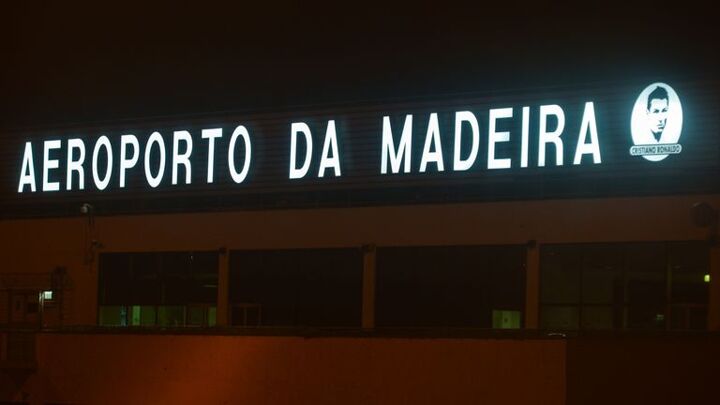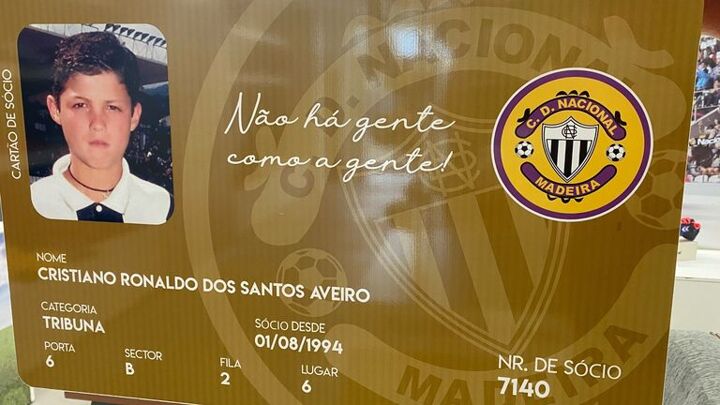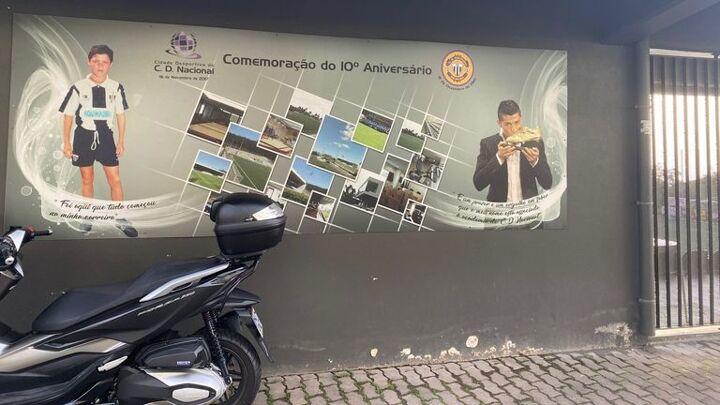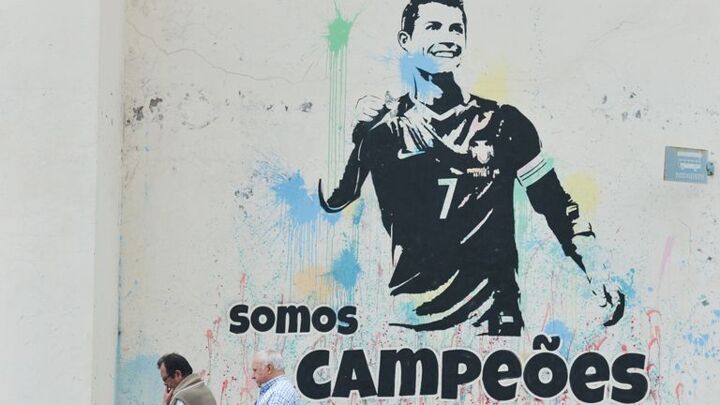In Madeira, the presence of Cristiano Ronaldo is felt from the moment you arrive. The airport is named after him. A bust stands outside it. And a quarter of a century after leaving for Lisbon, he remains a source of inspiration for young footballers on the island.

Ronaldo is a Manchester United player again. He is Real Madrid's record goalscorer. The story is often seen as having started at Sporting, where he made his professional debut. But that was not his first professional club. The journey began in Madeira.
The museum on the marina in Funchal, the island's capital, makes that very clear. It is a peculiar place, where trinkets from his glory days at Manchester United are interspersed with trophies won in minor tournaments as a small boy growing up in Madeira.
Ronaldo's mother can still be found there occasionally, grabbing her morning coffee. Inside the museum, a wall tracks the seven ages of Ronaldo, but Sporting is the third. They include his time at amateur side Andorinha and later Nacional, one of Madeira's biggest clubs.
The juxtaposition is odd, the sense that his is a global story - there are letters displayed from children all around the world - but also a local one. A statue bears an inscription calling him the best player in the world. A mural describes him as a son of the land.
Everyone has a story. Narciso Chaves is a tour guide in Funchal. He remembers standing next to Ronaldo in a nightclub when the player was just a young teenager and being told he would be the world's next superstar. The stories of his talent were known long before.
"Referees spoke about him at the age of 10," says Chaves. When he was 12, he would play against 16-year-old opponents. "They had no idea how to stop him." Tales of this kid from the streets of Santo Antonio, in the north-east of Funchal, rippled through the city.
It was at the age of 10 that Nacional snaffled him away from Andorinho, where his father was the kit man, in exchange for some equipment. He was at Nacional for just two years but you would not know it. He has been embraced. The connection is a marketing gift.

There is a famous picture of Ronaldo in his Nacional kit as a boy. It is everywhere. In the museum. In the window of the city centre club office. In a mocked-up Ronaldo membership card inside the shop at the club's stadium, high in the mountains that overlook Funchal.
The training ground walls carry Ronaldo quotes. "This is where it all started in my career," reads one. The complex is now named after him. "It gives me pleasure and pride that my name is associated with the academy of CD Nacional," reads another.

Children play on these pitches right next to the Estadio da Madeira. It is here that Nacional hope in vain that they might one day unearth a similar talent. Even if that is impossible, Joao Hugo Vieira is among the youth coaches using Ronaldo to inspire.
"Ronaldo is an inspiration for anyone," Vieira tells Sky Sports. "He is clearly an example and inspiration for young players who aspire to achieve success. But even for someone who is not connected to football, he is an example of hard work and overcoming adversity."

Vieira knows that he is unlikely to be coaching the next Ronaldo. "Our work as coaches is to motivate them to achieve their own goals and try to overcome obstacles successfully." In part, it is because Ronaldo's talent was so rare. But so are the opportunities here.
"Being a young player in Madeira, it is difficult to aspire to professional football. The market and the opportunities for visibility will always be smaller," he explains. "It is difficult. Unfortunately, opportunities are limited whether you are a player or a coach."

There is still gold to be found in those hills. "Quality players," says Vieira. "The talent is there, lots of it, although the competition here is less." To really succeed, players have to leave. As Ronaldo did. As the great Artur Pinga did in 1930, becoming a legend at Porto.
Ronaldo still has ties to the island. He returns for the occasional festivities and to see his family. Some here wonder whether he could do more. Others ask what the island really did for him, the hungry boy who relied on handouts from McDonald's staff to be fed.
He is not expected to return to the quiet life upon retirement. Manchester or Madrid, Milan or Miami, these are more likely destinations. Too big for Madeira? In a sense, he had outgrown it at 12. But, even in his absence, Ronaldo's presence looms large.
